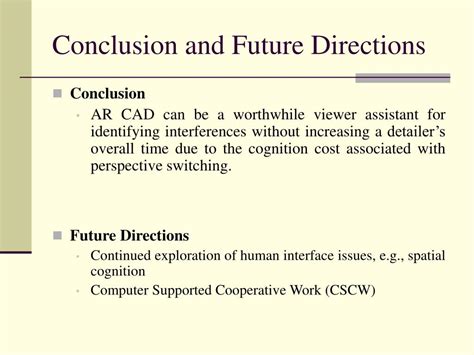Intro
Discover the potential risks of Benzonatate, a cough suppressant, including common side effects like drowsiness, headache, and nausea, as well as rare but serious reactions, to make informed decisions about your medication regimen and manage symptoms effectively.
Benzonatate is a medication commonly used to relieve coughs and other respiratory symptoms. It works by numbing the throat and lungs, which can help reduce the urge to cough. However, like all medications, benzonatate can cause side effects in some individuals. Understanding the potential side effects of benzonatate is crucial for patients who are considering taking this medication. In this article, we will delve into the details of benzonatate side effects, their severity, and what patients can do to manage them.
The importance of being aware of the side effects of any medication cannot be overstated. For benzonatate, some side effects are mild and temporary, while others can be more serious and require medical attention. Patients should always consult their healthcare provider before starting any new medication, including benzonatate, to discuss potential side effects and determine if the medication is safe for them to use. Additionally, patients should carefully follow the dosage instructions provided by their healthcare provider or the medication label to minimize the risk of side effects.
Benzonatate is generally considered safe when used as directed, but it can cause a range of side effects. Some of the most common side effects include dizziness, headache, and nausea. These side effects are usually mild and may resolve on their own within a few days of starting the medication. However, if these side effects persist or worsen, patients should notify their healthcare provider. It's also important for patients to be aware of more serious side effects, such as allergic reactions, which can be life-threatening and require immediate medical attention.
Benzonatate Side Effects Overview

Benzonatate side effects can be categorized into common, less common, and rare side effects. Common side effects are those that occur in more than 1% of patients taking the medication. These can include gastrointestinal symptoms like nausea and vomiting, as well as neurological effects such as dizziness and drowsiness. Less common side effects occur in fewer than 1% of patients but more than 0.1% and can include symptoms like constipation, diarrhea, and rash. Rare side effects, which occur in fewer than 0.1% of patients, can be more serious and include conditions such as anaphylaxis, a severe allergic reaction that requires immediate medical attention.
Common Benzonatate Side Effects
Common benzonatate side effects are typically mild and may include: - Dizziness - Headache - Nausea - Vomiting - Drowsiness These side effects are often transient and may subside as the body adjusts to the medication. However, if they persist or are severe, patients should consult their healthcare provider for advice.Less Common Benzonatate Side Effects

Less common side effects of benzonatate can include:
- Constipation
- Diarrhea
- Rash
- Itching
- Hives These side effects are less frequent but can still cause discomfort for patients. If any of these symptoms occur, patients should discuss them with their healthcare provider to determine the best course of action.
Rare but Serious Benzonatate Side Effects
Rare but serious side effects of benzonatate can include: - Anaphylaxis: A severe, life-threatening allergic reaction that requires immediate medical attention. - Angioedema: Swelling of the face, lips, tongue, or throat that can cause difficulty breathing. - Stevens-Johnson syndrome: A rare but serious disorder of the skin and mucous membranes. If patients experience any symptoms of these conditions, they should seek emergency medical help immediately.Managing Benzonatate Side Effects

Managing benzonatate side effects involves a combination of preventive measures and treatment strategies. Patients can reduce the risk of side effects by following the dosage instructions carefully and not exceeding the recommended dose. If side effects occur, patients can try several strategies to manage them. For example, taking benzonatate with food can help reduce gastrointestinal side effects like nausea and vomiting. Additionally, patients can consult their healthcare provider about adjusting the dosage or switching to a different medication if side effects are severe or persistent.
Lifestyle Adjustments to Minimize Side Effects
Lifestyle adjustments can also play a role in minimizing benzonatate side effects. Patients can try: - Staying hydrated to help prevent constipation. - Avoiding activities that require alertness, such as driving, if drowsiness occurs. - Practicing good sleep hygiene to manage sleep disturbances. - Maintaining a healthy diet to reduce the risk of gastrointestinal side effects.Benzonatate Interactions and Contraindications

Benzonatate can interact with other medications, and there are certain conditions under which it should not be used. Patients should inform their healthcare provider about all medications they are taking, including over-the-counter medications and supplements, to avoid potential drug interactions. Contraindications for benzonatate include a known allergy to the medication and certain medical conditions. Pregnant or breastfeeding women should also consult their healthcare provider before taking benzonatate, as its safety in these populations has not been well established.
Precautions for Special Populations
Special populations, including children, pregnant women, and individuals with certain medical conditions, may require special precautions when taking benzonatate. For example: - Children under the age of 10 should not take benzonatate due to the risk of accidental ingestion and overdose. - Pregnant women should use benzonatate only if the potential benefits outweigh the risks, as there is limited data on its safety during pregnancy. - Individuals with a history of bronchial asthma, chronic bronchitis, or emphysema should use benzonatate with caution, as it can worsen these conditions.Conclusion and Future Directions

In conclusion, while benzonatate is an effective medication for relieving coughs and other respiratory symptoms, it can cause a range of side effects. Understanding these side effects and taking steps to manage them can help patients use benzonatate safely and effectively. Future research should focus on developing new medications with fewer side effects and improving our understanding of how benzonatate interacts with other medications and medical conditions.
Final Thoughts on Benzonatate
As with any medication, the decision to take benzonatate should be made in consultation with a healthcare provider. By weighing the potential benefits against the risks and taking steps to minimize side effects, patients can use benzonatate to manage their symptoms effectively. Remember, it's always better to be informed and proactive when it comes to your health.What is the most common side effect of benzonatate?
+The most common side effects of benzonatate include dizziness, headache, and nausea.
Can benzonatate be used in children?
+Benzonatate is not recommended for children under the age of 10 due to the risk of accidental ingestion and overdose.
How can I minimize the risk of benzonatate side effects?
+To minimize the risk of benzonatate side effects, follow the dosage instructions carefully, take the medication with food if recommended, and consult your healthcare provider about any concerns.
We hope this comprehensive guide to benzonatate side effects has been informative and helpful. If you have any further questions or concerns, please don't hesitate to reach out to your healthcare provider. Share this article with others who might benefit from this information, and let's work together to make informed decisions about our health.
